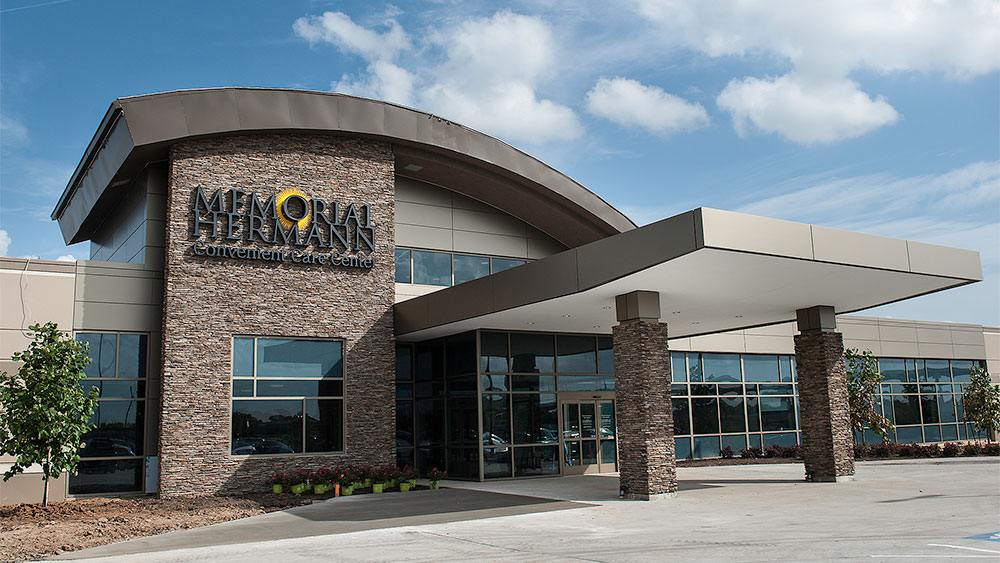When you think of occupational therapy, what comes to mind? Perhaps someone who needs help returning to work after an injury? When you think about it, though, everyone has an occupation – whether you are a child learning social skills at school or an elderly person maintaining your home. Occupational therapy is more than a treatment only for the working class. It incorporates every aspect of your lifestyle into a holistic treatment program designed to get you back to doing the things you love to do faster.
At Memorial Hermann, our certified occupational therapists work closely with physical therapists, physicians, and orthopedic surgeons as one cohesive rehabilitation team to care for each of our patients comprehensively. We offer a broad range of treatment options, including:
- Manual therapy
- Soft tissue massage
- Orthotic fabrication
- Scar management
- Myofascial release
If you are dealing with an injury, disease, or chronic condition that is keeping you from participating in normal, daily activities, our staff of professional, caring therapists can help.
Occupational Therapy vs. Physical Therapy
The fields of occupational and physical therapy often overlap, which can be unclear if you’re unsure of which treatment you need.
For instance, both occupational and physical therapists are skilled health care professionals, dedicated to helping you restore function lost to disease, injury, or disability. Both utilize research and evidence-based approaches to treatment and follow similar treatment schedules, with an initial patient evaluation to assess current abilities and prescribed exercises to help increase function. In some cases, occupational and physical therapists share certain subspecialties, such as hand therapy.
However, a few key differences exist between occupational and physical therapy. While physical therapy targets improving mobility and function while reducing pain, occupational therapy focuses on helping you regain the ability and independence to complete everyday activities and live a more normal life. Often, this includes the use of pre-fabricated or custom orthotics, such as splints or braces to help support your body.
Occupational therapists can even advise you on changing your lifestyle to avoid injury or debilitating conditions, such as the use of ergonomics at work to reduce the risk of lower back pain and carpal tunnel syndrome.
At Memorial Hermann, our occupational and physical therapists specifically focus on different parts of the body, and by dividing these treatment areas, our rehabilitation teams gain specific expertise and provide targeted care for our patients. At our clinic locations, occupational therapy focuses on the upper extremities:
- Shoulder
- Upper arm and forearm
- Elbow
- Wrist
- Hand
Physical therapy focuses on the back and lower extremities:
- Hip
- Leg
- Knee
- Ankle
- Foot
Common Conditions Treated With Occupational Therapy
The following are a selection of the more common conditions treated with occupational therapy:
- Fractures of the fingers, wrist, elbow, and shoulders
- Sprains and strains
- Tendon and ligament injuries, such as golfer’s elbow or tennis elbow
- Burns, wounds, and infections
- Amputations
- Chronic or repetitive trauma injuries, such as carpal tunnel or radial nerve palsy
- Congenital or neurological disorders
What to Expect from Occupational Therapy Treatment
If you’re a first-time patient, you might be unsure about the therapy process and what is expected. The occupational therapy staff at Memorial Hermann does their best to answer any questions and make the process as stress-free as possible.
You should expect your first therapy session to include a detailed discussion of medical history, the reason for your visit, and the descriptions of any current pain or issues in as much detail as possible. Our staff will then work with you to set therapy goals.
Your goals are the focal point of all occupational therapy treatments, regardless of condition, so specify your goals – your therapist will let you know if they are unrealistic. Establishing clear treatment goals will help your rehabilitation team develop education and exercises that give you the best chance for success.
The following activities are fairly common for patients undergoing occupational therapy treatment:
- Exercises to increase range of motion
- Activities to improve fine motor coordination
- General strength and conditioning exercises
- Ongoing education to prevent reoccurrence and degeneration of your condition
While the therapy process is different for everyone, expect your occupational therapy sessions to last anywhere from 40 minutes to one hour.
Do I Need Occupational Therapy?
Our therapists are trained to work closely with you and help you set treatment goals that are ambitious yet realistic. For example, you might feel you need to return to work or other activities faster than is safe and reasonable. Your occupational therapist’s job is to provide a safe space for you to come to terms with your injury or disability and counsel you on living a normal, productive life moving forward.
Occupational therapists are concerned with all aspects of your quality of life – physical, psychological, emotional, and social – and how disrupting one aspect can affect your overall well being. Our trained staff help patients every day who are struggling with injuries or conditions that prevent them from completing normal, daily activities.
If adjusting to life is difficult as a result of trauma, disease, chronic or neurologic conditions, or congenital deformities, talk with your primary care physician to see if occupational therapy is right for you.
Ready for Relief?
If you’re interested in finding relief through physical or occupational therapy, the therapists at Memorial Hermann Sports Medicine & Rehabilitation are here to help. Request an initial evaluation appointment by filling out the form below or calling (713) 521-0020 or (888) 301-8477.

















